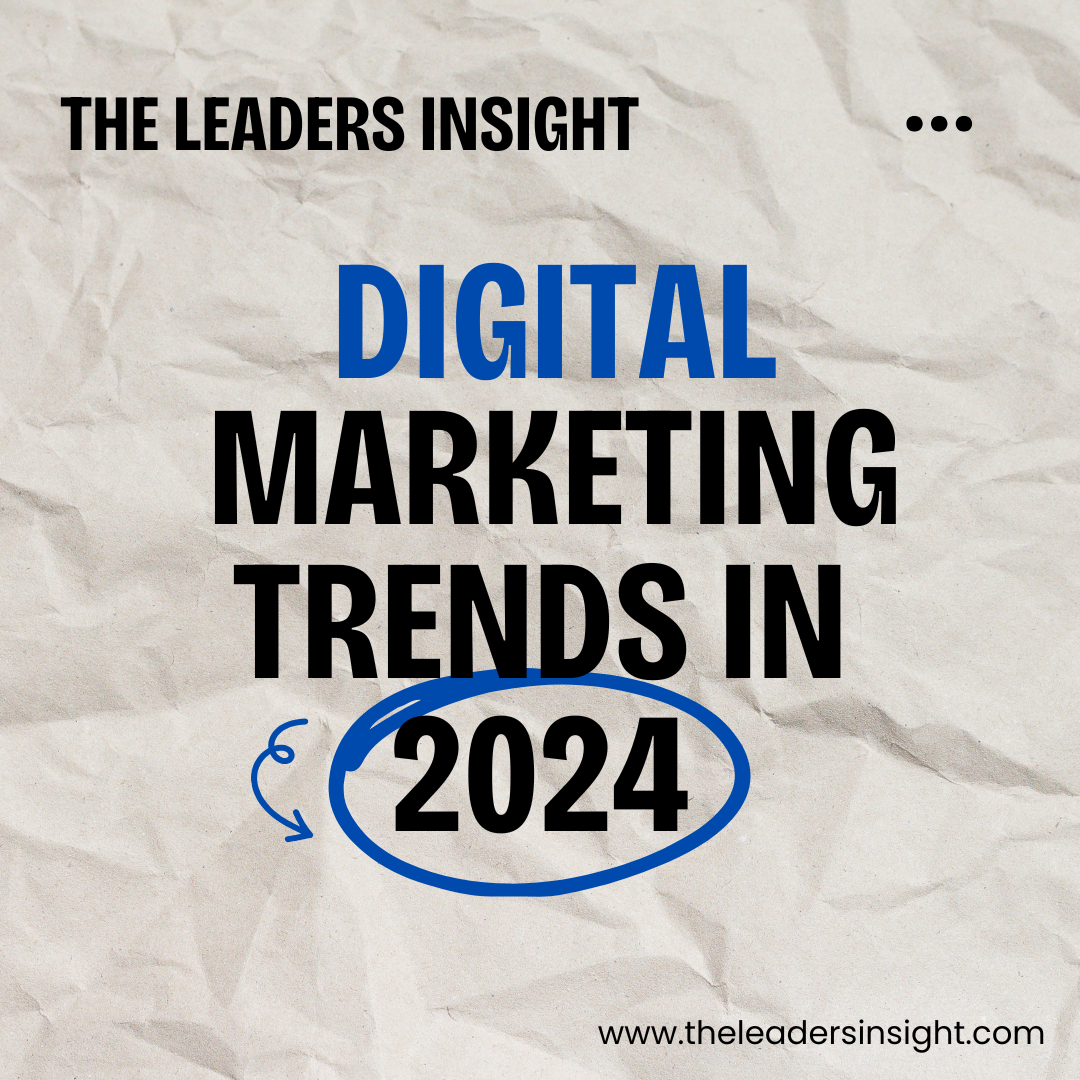The Evolution of Digital Marketing: Trends and Strategies

Digital marketing has become a cornerstone of business strategy in today’s technology-driven world
With the rise of online platforms and changing consumer behavior, companies are constantly adapting their marketing strategies to stay competitive. As we progress through 2024, this article explores the latest trends, techniques, and innovations shaping the future of digital marketing.
The Rise of Artificial Intelligence in Digital Marketing
Artificial Intelligence (AI) is revolutionizing digital marketing by enhancing data analysis, personalization, and customer engagement. AI-driven tools are enabling marketers to gain deeper insights into consumer behavior, allowing for more targeted campaigns. According to a report by Salesforce, 69% of marketers are using AI to improve customer experiences.
AI chatbots have become essential for customer service, providing instant responses to inquiries and facilitating smoother interactions. Businesses such as Sephora are utilizing AI to offer personalized product recommendations based on customer preferences and purchase history. This level of personalization can significantly boost conversion rates and customer loyalty.
The Importance of Content Marketing
Content marketing continues to be a vital component of digital marketing strategies. High-quality content that addresses the needs and interests of the target audience can establish a brand as an authority in its industry. According to Content Marketing Institute, 70% of consumers prefer getting to know a company via articles rather than ads.
In 2024, video content remains one of the most engaging formats. Platforms like YouTube and TikTok have seen explosive growth, with brands increasingly using these platforms for storytelling and product demonstrations. Incorporating video into content marketing strategies can lead to higher engagement and improved SEO rankings, as search engines favor diverse content formats.
Social Media Marketing: Trends to Watch
Social media marketing is evolving rapidly, with new platforms and trends emerging regularly. As of 2024, platforms like TikTok and Instagram Reels are dominating the landscape, offering brands unique opportunities for short-form content creation. According to HubSpot, 92% of marketers believe that social media is an essential part of their business.
Influencer marketing continues to gain traction, with brands partnering with influencers to reach specific audiences authentically. Micro-influencers, those with smaller but highly engaged followings, are particularly effective in building trust and driving conversions. The Digital Marketing Institute reports that 49% of consumers depend on influencer recommendations.
Moreover, social commerce is becoming a significant trend, with platforms integrating shopping features. Brands can now sell products directly through social media, streamlining the purchasing process. Businesses like Shopify are facilitating this shift by providing tools that enable seamless integration between e-commerce and social media.
Search Engine Optimization (SEO) Strategies
As competition intensifies in the digital landscape, SEO remains crucial for driving organic traffic. In 2024, voice search optimization is becoming increasingly important as more consumers use smart speakers and mobile devices for queries. According to Search Engine Journal, 50% of all searches are expected to be voice searches by the end of this year.
Optimizing for featured snippets—concise answers displayed at the top of search results—can significantly increase visibility. Brands should focus on providing clear, direct answers to common questions in their content to capture these snippets.
Additionally, local SEO is gaining prominence as consumers increasingly seek nearby businesses. Google’s Local Pack feature highlights businesses based on proximity, making local SEO optimization essential for attracting foot traffic.
Email Marketing: A Timeless Strategy
Email marketing remains a powerful tool for building customer relationships and driving conversions. With an average return on investment (ROI) of $42 for every dollar spent, email marketing continues to deliver significant value. According to Campaign Monitor, 81% of small businesses rely on email as their primary customer acquisition channel.
Personalization in email marketing is crucial for success. Tailoring email content based on customer behavior, preferences, and demographics can significantly improve open and click-through rates. Utilizing segmentation allows brands to send targeted campaigns that resonate with specific audience segments.
In 2024, interactive emails—those that include engaging elements like quizzes, polls, and videos—are gaining popularity. These features encourage recipients to interact with the content, leading to higher engagement rates.
The Role of Data Analytics in Digital Marketing
Data analytics is transforming how businesses approach digital marketing. Marketers are leveraging analytics tools to track user behavior, campaign performance, and conversion metrics. Platforms like Google Analytics provide valuable insights that inform marketing strategies.
In 2024, predictive analytics is emerging as a game-changer, enabling marketers to forecast trends and consumer behavior. By analyzing historical data, businesses can make data-driven decisions that enhance marketing effectiveness. A report by Deloitte highlights that organizations using predictive analytics are 1.6 times more likely to achieve competitive advantage.
Sustainability and Ethical Marketing
As consumers become more environmentally conscious, sustainability is becoming a vital aspect of digital marketing. Brands that prioritize sustainability in their practices and messaging are likely to resonate with today’s consumers. According to Nielsen, 73% of global consumers say they would change their consumption habits to reduce their environmental impact.
Transparent and ethical marketing practices are crucial for building trust with consumers. Brands should communicate their sustainability efforts clearly, showcasing their commitment to responsible practices. Incorporating eco-friendly messaging into marketing campaigns can help differentiate a brand in a crowded market.
